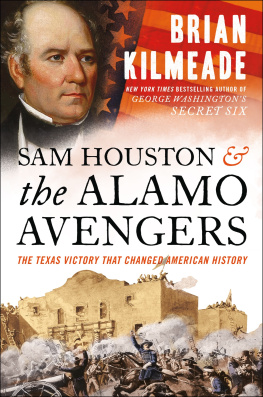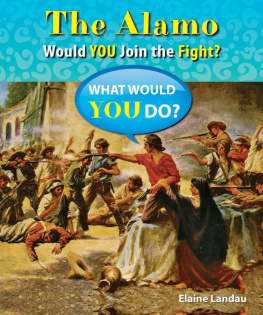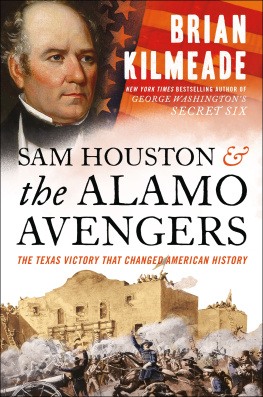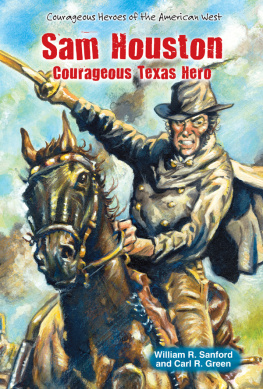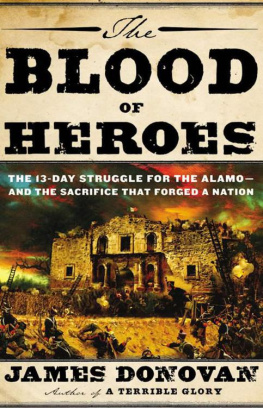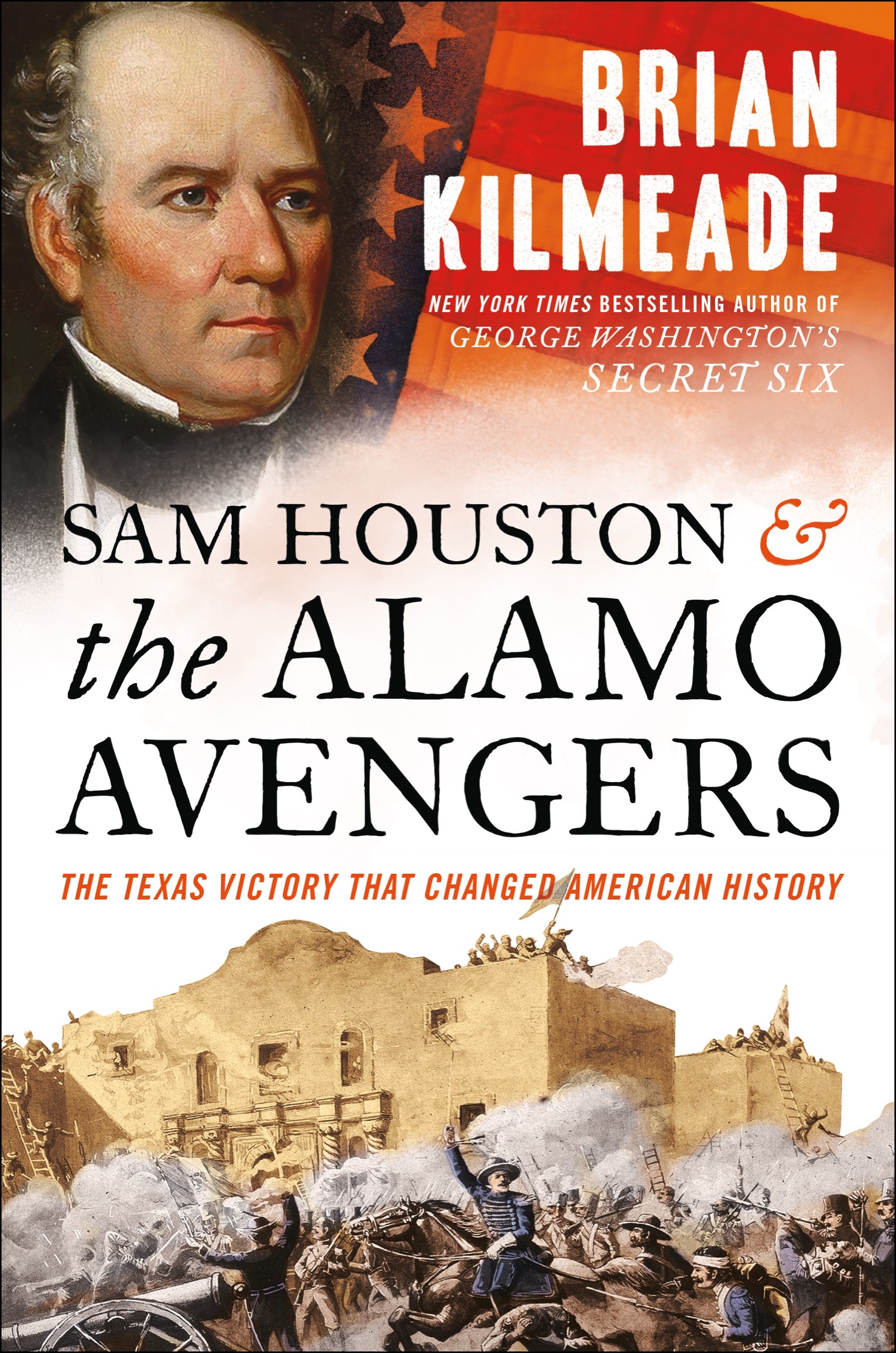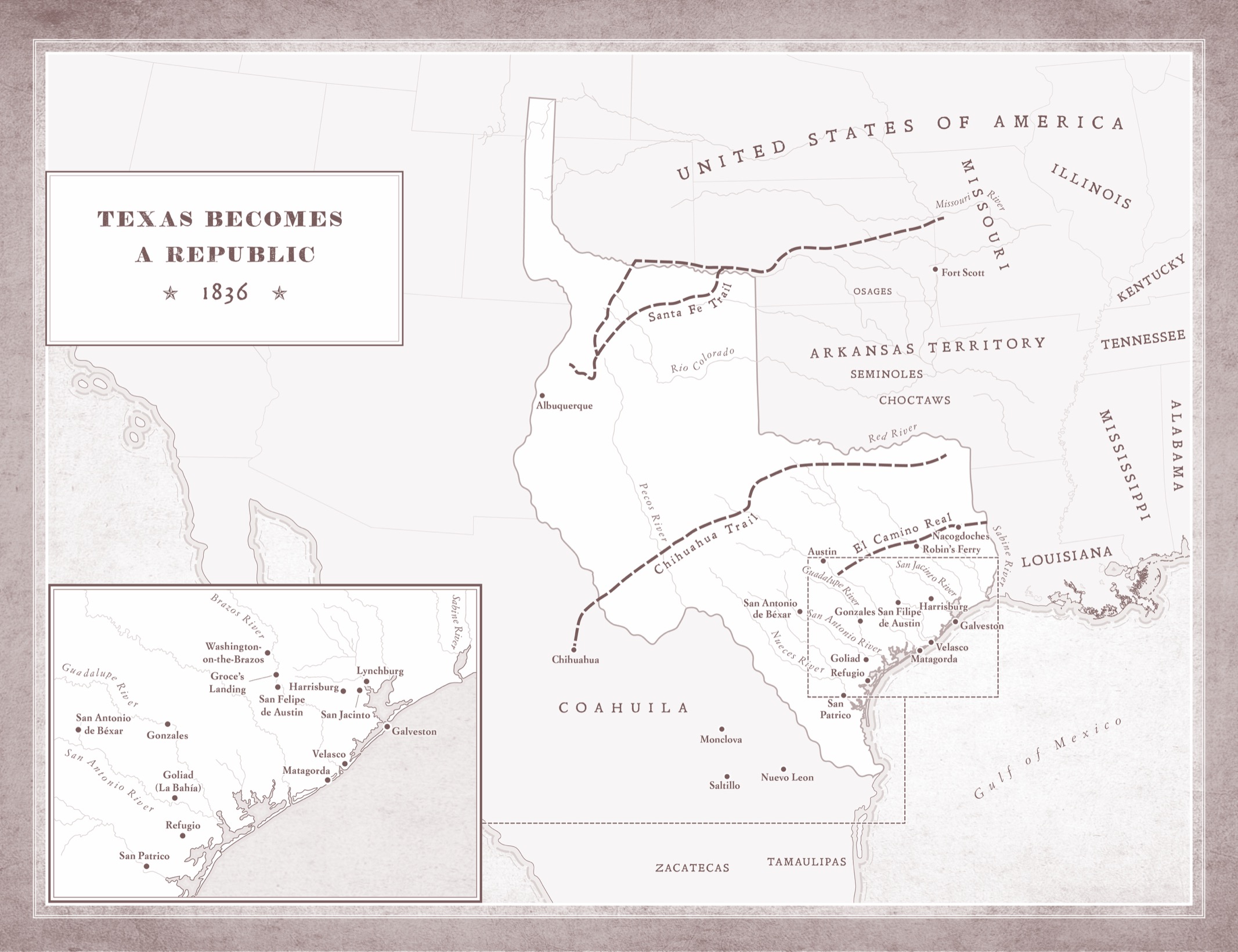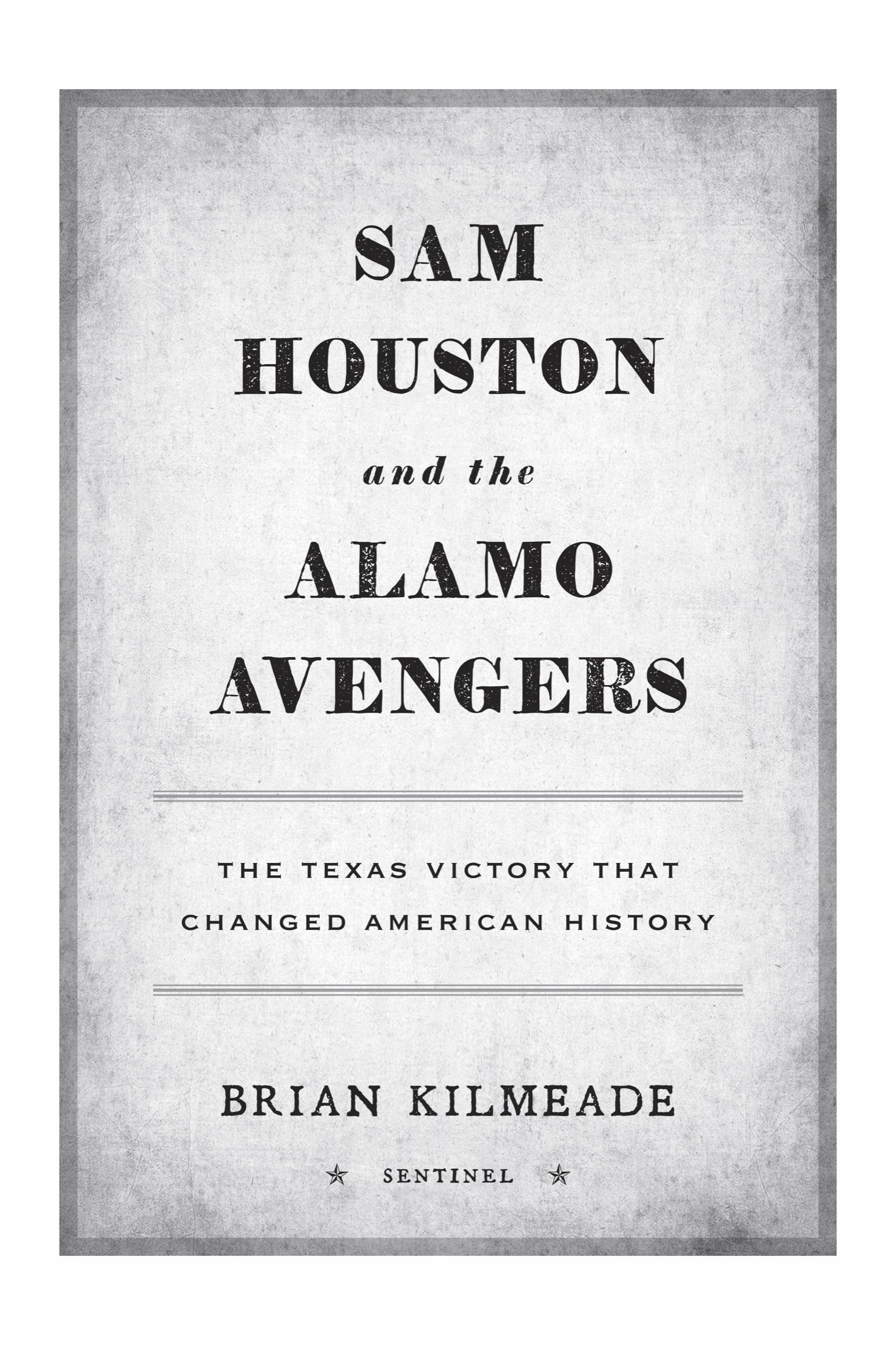ALSO BY BRIAN KILMEADE
George Washingtons Secret Six
Thomas Jefferson and the Tripoli Pirates
Andrew Jackson and the Miracle of New Orleans
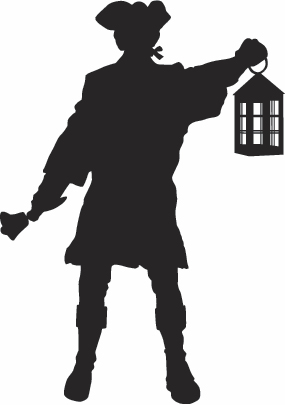
SENTINEL
An imprint of Penguin Random House LLC
penguinrandomhouse.com

Copyright 2019 by Brian Kilmeade
Penguin supports copyright. Copyright fuels creativity, encourages diverse voices, promotes free speech, and creates a vibrant culture. Thank you for buying an authorized edition of this book and for complying with copyright laws by not reproducing, scanning, or distributing any part of it in any form without permission. You are supporting writers and allowing Penguin to continue to publish books for every reader.
constitutes an extension to this copyright page.
Library of Congress Cataloging-in-Publication Data
Names: Kilmeade, Brian, author.
Title: Sam Houston and the Alamo Avengers : The Texas Victory That Changed American History / Brian Kilmeade.
Other titles: Texas victory that changed American history
Description: [New York] : Sentinel, [2019] | Includes bibliographical references and index. |
Identifiers: LCCN 2019022817 (print) | LCCN 2019022818 (ebook) | ISBN 9780525540533 (hardcover) | ISBN 9780525540564 (epub)
Subjects: LCSH: Houston, Sam, 17931863. | TexasHistoryRevolution, 18351836. | Alamo (San Antonio, Tex.)Siege, 1836. | GovernorsTexasBiography. | LegislatorsUnited StatesBiography. | TexasHistoryTo 1846.
Classification: LCC F390.H84 K55 2019 (print) | LCC F390.H84 (ebook) | DDC 976.4/04092 [B]dc23
LC record available at https://lccn.loc.gov/2019022817
LC ebook record available at https://lccn.loc.gov/2019022818
MAPS BY DANIEL LAGIN
Cover design: Catherine Casalino
Cover images: (Alamo battle) Kean Collection / Getty Images; (American flag) Jacob Termansen and Pia Marie Molbech / Dorling Kindersley / Getty Images; (Portrait of Sam Houston) The Picture Art Collection / Alamy Stock Photo
Version_1
To my mother, my greatest supporter, defender, and inspiration. May her legacy of toughness, kindness, and loyalty live on in all those who were lucky enough to know her.
My son, take this musket and never disgrace it; for remember, I had rather all my sons should fill one honorable grave, than that one of them should turn his back to save his life. Go, and remember, too, that while the door of my cottage is open to brave men, it is eternally shut against cowards.
E LIZABETH H OUSTON
CONTENTS
PROLOGUE
The Lessons of Battle
Experience is the teacher of all things.
J ULIUS C AESAR
No small target at six-foot-two, young Sam Houston wasnt thinking about getting hit. He was thinking about getting even. Running through a hail of musket balls, spears, and arrows, he and his fellow soldiers sprinted toward an eight-foot-tall barricade. Behind it was an army of Red Stick Creek American Indians who had massacred three hundred men, women, and children at a Mississippi Territory stockade town called Fort Mims seven months earlier. For months Houston and his fellow soldiers serving under General Andrew Jackson had been attempting to retaliate, only to have the Red Sticks escape them time and time again. But now Jackson and his men had discovered their main camp, here at Horseshoe Bend, and they were not leaving without revenge.
The first man over the barricade took a bullet to the skull and fell back lifeless. Just behind him, Sam Houston never wavered.
On enlisting a year earlier as a private, Houston had immediately attracted notice. Tall and strong, his eyes a piercing blue, he looked every inch a leader. Promoted to drill sergeant, Houstons deep voice rang with authority; in a matter of months, he was promoted twice more. His superiors saw him as soldierly [and] ready to do, or to suffer, whatever the obligation of... military duty imposed. Now that resolution would be tested.
As the second man to top the wall, Houston did not hesitate. Waving his sword, he called for his men to follow. He immediately drew enemy fire, and he leapt to the ground inside the Red Stick fort, an arrow plunged deep into his upper thigh.
Houston refused to be turned aside. Despite the pain, he remained standing, fighting on with the shaft of the arrow protruding from his leg. His platoon, joined by reinforcements, soon drove the Red Sticks back. Only then did Houston look to his wound.
At Sam Houstons order, another lieutenant triedbut failedto pull the arrow from his thigh. At Houstons insistence, the officer yanked a second time, but still the arrow refused to budge. Houston, sword in hand, demanded a third attempt, saying, Try again and, if you fail this time, I will smite you to the earth. This time the barbed arrowhead tore free, releasing a gush of blood and opening a deep gash.
Most men would have been done for the day and, after a surgeon field dressed his gaping wound, Houston rested. When General Jackson came to check the wounded, he recognized the young man who had helped lead the charge and honored him for his braverybut he also ordered Houston out of the fight. Houston objected, but Jackson was firm.
Houston admired Jackson as the sort of father hed always wanted, but he wasnt about to be kept out of the battle by anyone or anything. A short time later, when Jackson called for volunteers to storm a last Red Stick stronghold built into a ravine, Houston got to his feet and grabbed a musket. Limping and bloodied, he charged. When he stopped to level his gun, musket balls smashed into his right shoulder and upper arm, and his shattered limb fell to his side. Houston barely managed to make his way out of the range of fire before collapsing to the earth.
In the hours that followed, the Red Sticks were finally routed; hundreds of fighters lay dead. Fort Mims had been avenged, and the British deprived of a key ally in their attempt to destroy the young United States.
But Houston had paid a high price for his part in this victory, and he was about to learn that perhaps his drive to be in the action at any cost was not the best way to serve his country.
After Houston was carried from the field, a surgeon removed one of the musket balls but halted the procedure before digging deeper to extract the second lead projectile. In the cold triage of the battlefield, he saw no reason to inflict more suffering. In his judgment, this man would not survive the night. Houston would spend the darkest night of [my] life on the damp ground, alone and racked with the keen torture of... many wounds. But he lived to see the dawn.
Houston would carry to his grave the musket ball fragments in his shoulder, and the wound on his thigh never entirely healed. And just a few months later, the wounds tortured him in a different way when, upon arriving in Washington, D.C., he experienced a moment of horror. The British had burned the Capitol and the presidents house shortly before. As he looked upon the ruins, he later remembered, My blood boiled and I experienced one of the keenest pangs of my life in the thought that my right arm should be disabled at such a moment, and while the foe was still prowling through the country.

